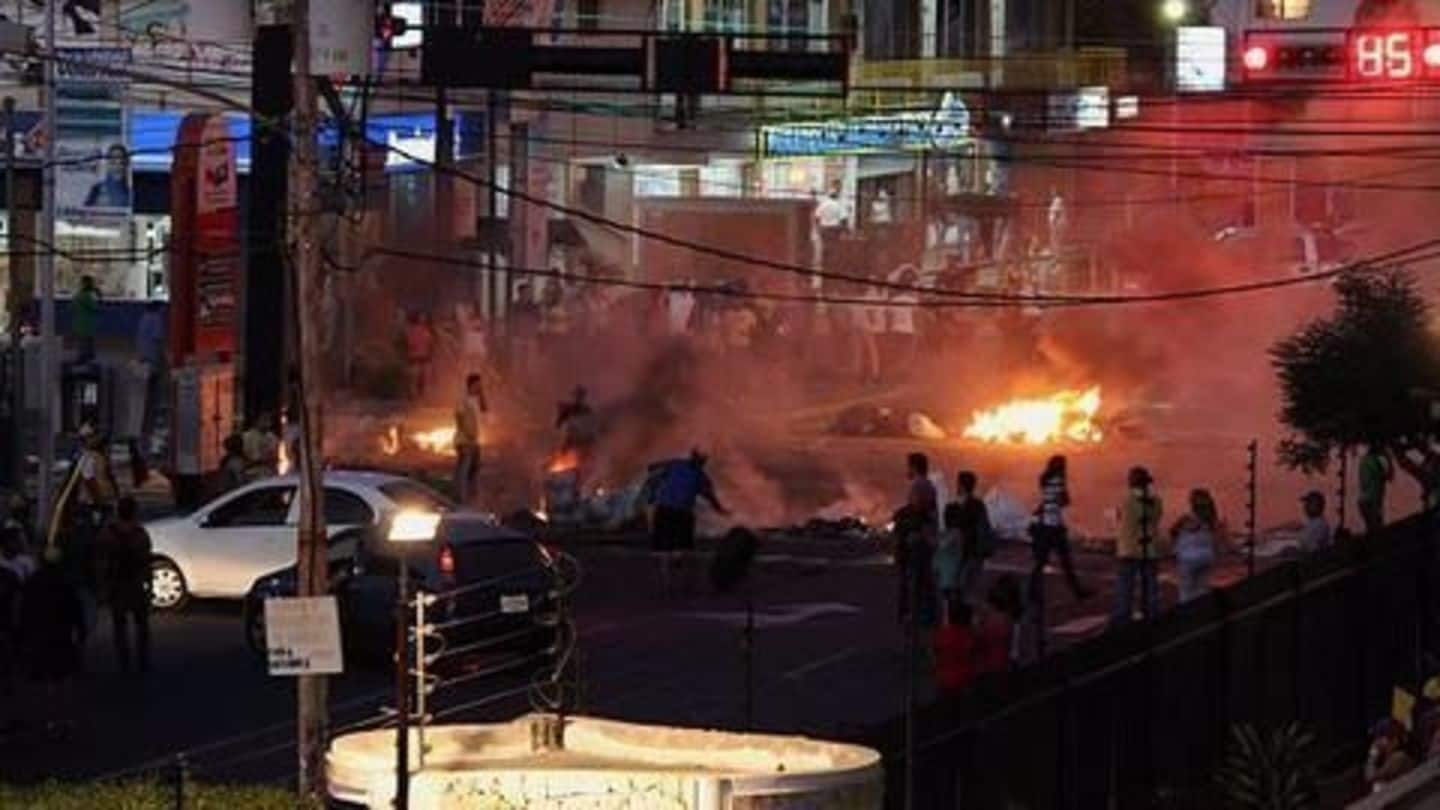
Clashes mar Venezuela's constituent assembly vote, 10 killed
What's the story
At least 10 people have died in protest-related violence in Venezuela as the country voted for a controversial constituent assembly. The President Nicolas Maduro-led government wants the assembly to rewrite the constitution and override the opposition-controlled congress. The opposition has boycotted the vote, calling it a power grab by Maduro. An opposition youth leader, a pro-government candidate and a soldier are among those killed.
Background
Roots of the crisis
Venezuela's primary source of income is from its vast oil reserves. The recent slump in oil prices compounded a pre-existent economic crisis which was precipitated by over-exploitation and corrupt practices in government sponsored social welfare schemes. Inflation in the country will soon touch 700% according to the IMF, and the economy is on the verge of collapse. Unemployment rates are also skyrocketing.
28 Jul 2017
Opposition calls for strike against Venezuelan president's constitution rewrite plans
On July 28, Venezuelan opposition leaders called on workers nationwide to stay home as part of a 48-hour strike aimed at protesting against President Nicolas Maduro's plans to hold a controversial constituent assembly election on July 30. The assembly has the power to rewrite the Venezuelan constitution which could allow Maduro to expand his powers. Maduro claims it will facilitate peace and stability.
28 Jul 2017
Venezuela govt. bans protests that 'disturb' controversial vote
The Venezuelan government banned protests which may "disturb or affect" a controversial election for a new constituent assembly scheduled for July 30. Violators could receive between five and 10-year prison sentences. The opposition called for mass protests on July 28. Over 100 people have been killed in protest-related violence since April. The opposition considers the assembly vote a move towards dictatorship.
Information
Why does Maduro want a new constituent assembly?
Maduro wants a new constituent assembly so it can draft or adopt a new constitution. Maduro said the assembly would facilitate "reconciliation and peace" in a polarized country. However, he hasn't given specific details on how rewriting the constitution would help achieve this.
Background
Vote comes after months of protests against economic crisis
Maduro, who was elected in 2013, has faced months of protests and violence which has killed around 120 people. The protests are against his handling of a severe economic crisis that has caused high inflation rates and shortages of food and other necessary items. Maduro's decision to forge ahead with the constituent assembly vote comes despite US threats of imposing additional sanctions.
International isolation
Constituent assembly vote criticized by several countries
Latin American countries, the EU and the US have all heavily criticized the Venezuelan election. Venezuela has threatened to withdraw from the Organisation of American States (OAS) after member countries, such as US, Canada and Mexico said they wouldn't recognize the assembly's authority. Regional economic bloc Mercosur has suspended Venezuela after member countries Brazil, Argentina, Uruguay and Paraguay expressed human rights concerns.